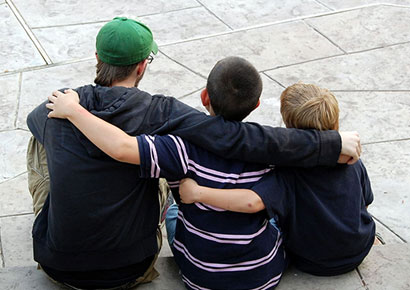Connecticut 9th US region to ban Conversion Therapy for LGBTQ youth
 Connecticut Governor Dannel Malloy has signed a bill that protects LGBTQ youth in the state from the dangerous and discredited practice of so-called “conversion therapy”.
Connecticut Governor Dannel Malloy has signed a bill that protects LGBTQ youth in the state from the dangerous and discredited practice of so-called “conversion therapy”.
The Connecticut Senate unanimously approved the bill on Wednesday. The state becomes the ninth jurisdiction to enact a ban on mental health professionals trying to change the sexual orientation of gender identity of a minor.
“No child should be subjected to this abusive practice,” commented HRC President Chad Griffin. “Medical professionals agree this extremely harmful and discredited practice not only doesn’t work, but can also have life-threatening consequences.”
California, New Jersey, Oregon, Illinois, Vermont, New York and New Mexico, as well as the District of Columbia, all have laws or regulations protecting youth from conversion therapy.
A growing number of US municipalities have also enacted similar protections, including cities in Ohio, Pennsylvania, and Florida. Earlier this month, the US Supreme court rejected legal challenges to overturn the ban on the practice in California.
In December, Malta became the first nation to outlaw trying to change LGBT people by passing a law that criminalises conversion therapy as a “deceptive and harmful” act.
Conversion therapy, sometimes referred to as “sexual orientation change efforts” or “reparative therapy,” encompasses a range of practices that seek to change an individual’s sexual orientation or gender identity or expression.
These practices are based on the false premise that being LGBTQ is a mental illness that needs to be cured — a theory that has been rejected for decades by every major medical and mental health organisation.
There is no credible evidence that conversion therapy can change a person’s sexual orientation or gender identity or expression. To the contrary; research has clearly shown that these practices pose devastating health risks for LGBTQ young people such as depression, decreased self-esteem, substance abuse, homelessness, and even suicidal behaviour.
Leave a Reply